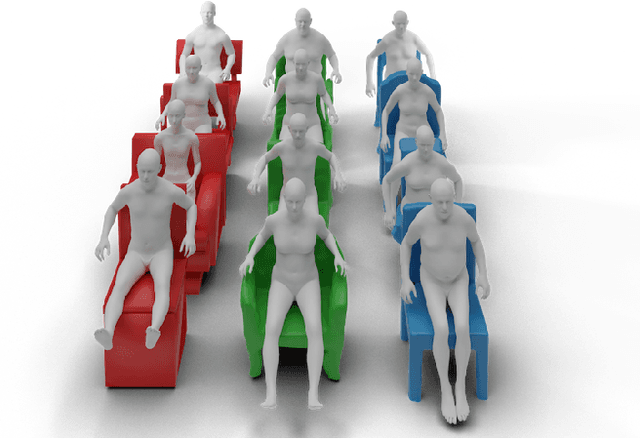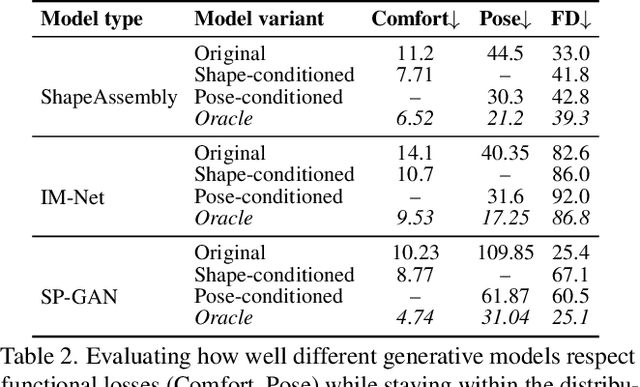Learning Body-Aware 3D Shape Generative Models
Paper and Code
Dec 16, 2021



The shape of many objects in the built environment is dictated by their relationships to the human body: how will a person interact with this object? Existing data-driven generative models of 3D shapes produce plausible objects but do not reason about the relationship of those objects to the human body. In this paper, we learn body-aware generative models of 3D shapes. Specifically, we train generative models of chairs, an ubiquitous shape category, which can be conditioned on a given body shape or sitting pose. The body-shape-conditioned models produce chairs which will be comfortable for a person with the given body shape; the pose-conditioned models produce chairs which accommodate the given sitting pose. To train these models, we define a "sitting pose matching" metric and a novel "sitting comfort" metric. Calculating these metrics requires an expensive optimization to sit the body into the chair, which is too slow to be used as a loss function for training a generative model. Thus, we train neural networks to efficiently approximate these metrics. We use our approach to train three body-aware generative shape models: a structured part-based generator, a point cloud generator, and an implicit surface generator. In all cases, our approach produces models which adapt their output chair shapes to input human body specifications.
 Add to Chrome
Add to Chrome Add to Firefox
Add to Firefox Add to Edge
Add to Edge